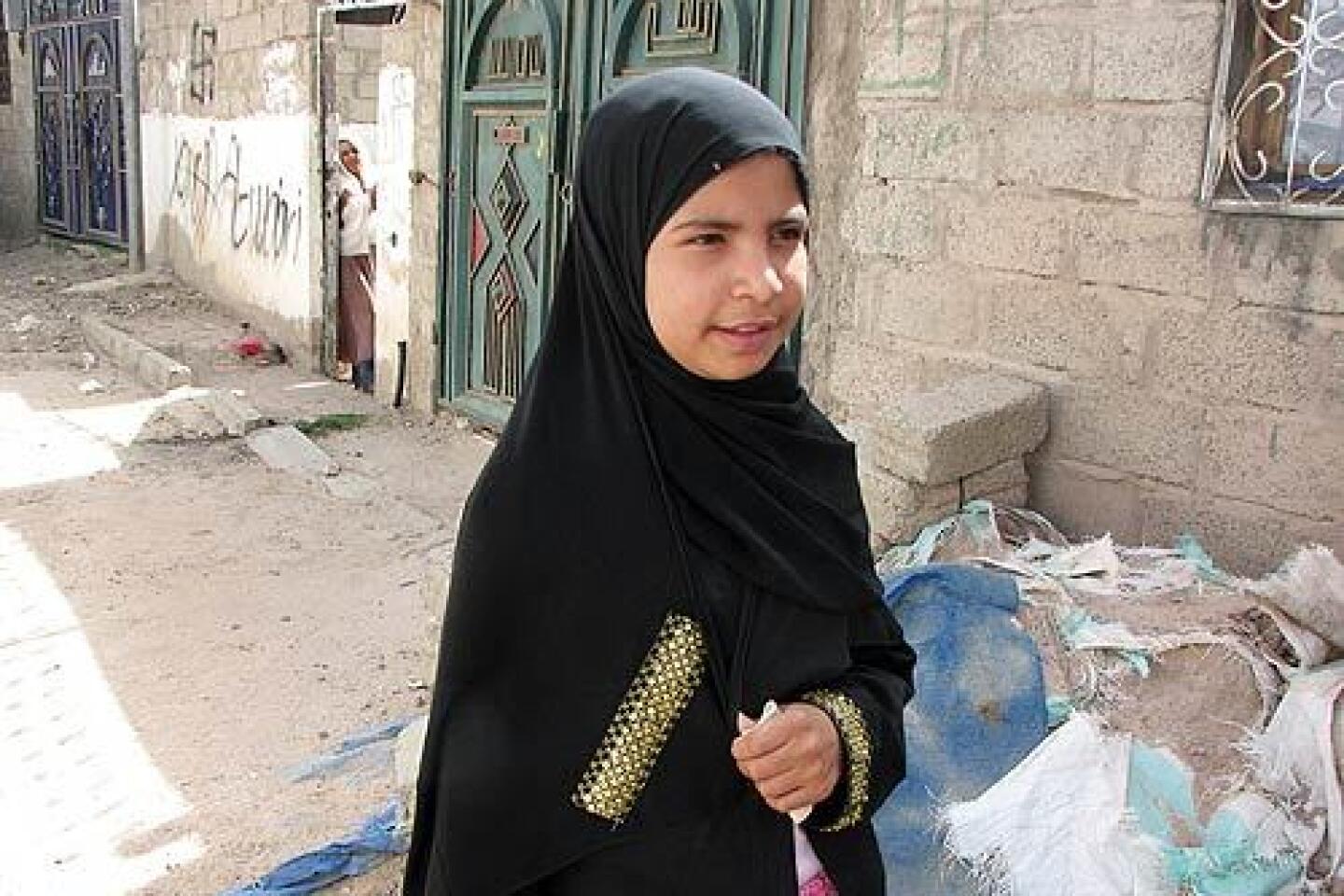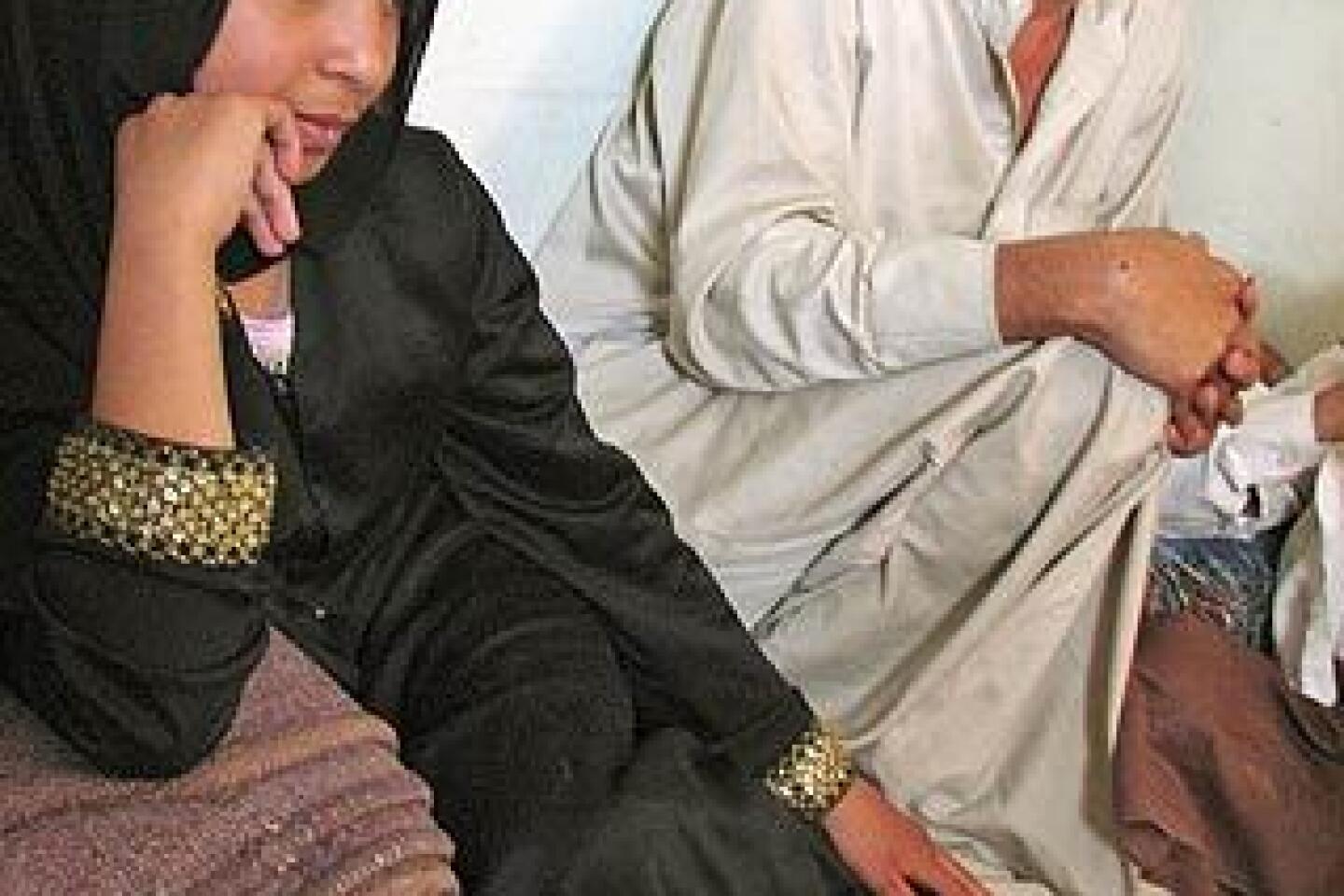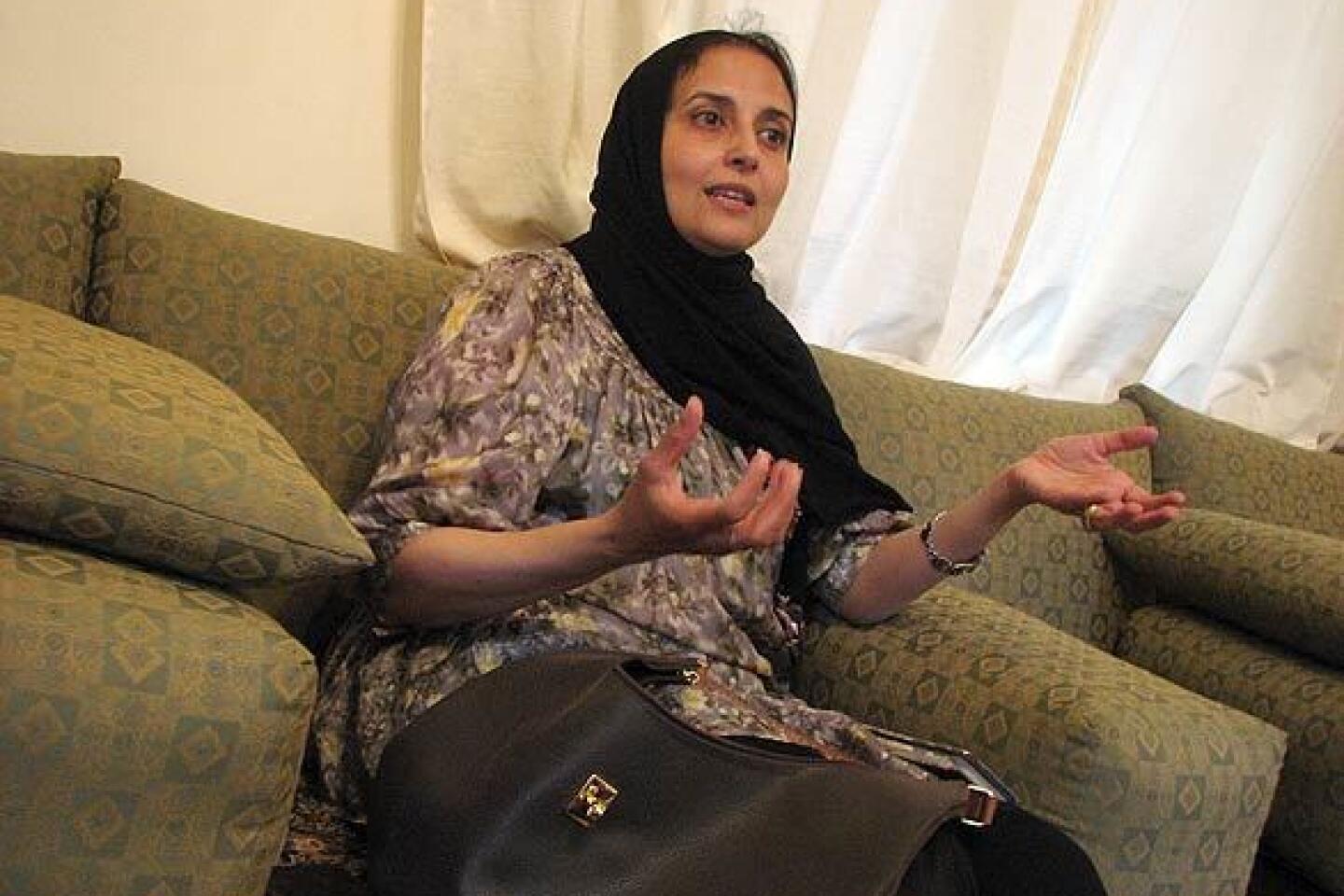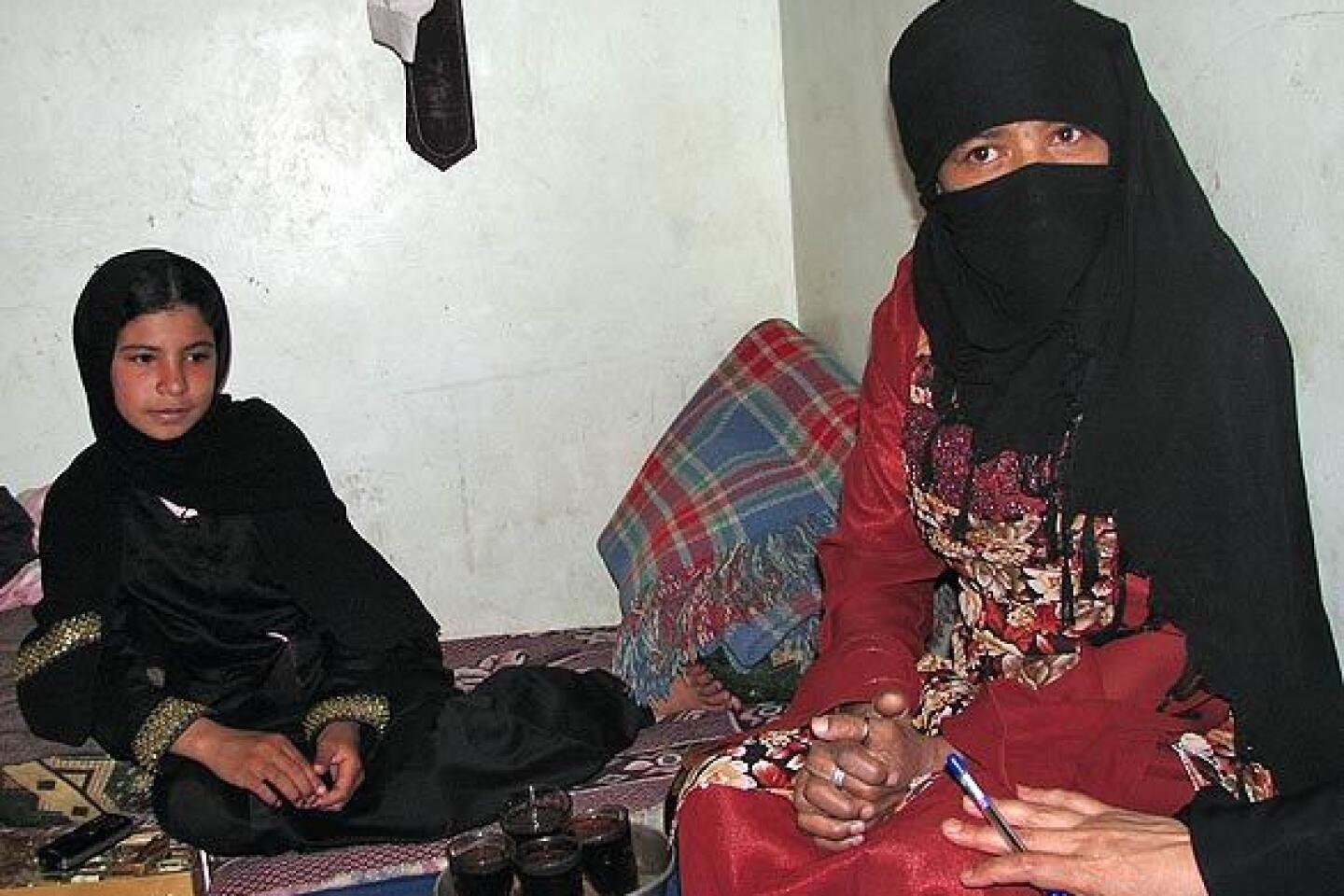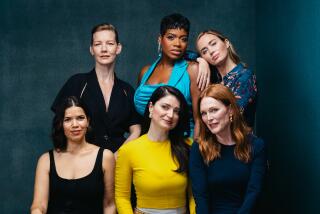Yemeni 10-year-old divorcee Nujood Ali goes back to school
SANA, YEMEN — Still groggy, the schoolgirl brushed her hair, struggled to pull on her socks and snuggled into her school uniform: a green gown and a white head scarf.
By the time she gathered up her books and strapped on her backpack she was smiling and enthusiastic, her nervousness eclipsed by anticipation of the first day of class.
Like children across the world, 10-year-old Nujood Ali went back to school this month after a lengthy break. But Nujood hadn’t been lazing about or playing hide-and-seek with her friends during the summer.
Instead, after she was pulled out of the second grade by her father earlier this year, she was married off to a man three times her age, who beat her and sexually abused her.
For many girls in this traditional society, where tribal custom and conservative interpretations of Islam dominate, that would have been the end of the story. But Nujood was outraged. She gathered up her courage and on the advice of an aunt went to court in April. She got the help of a lawyer and filed for divorce.
A judge quickly granted it.
And on Tuesday morning, the divorcee, possibly the world’s youngest, once again became a schoolgirl.
“I’m very happy to be going back to school,” she said, waiting in her ramshackle home for her younger sister Haifa to get ready. “I’m going to study Arabic, the Koran, mathematics and drawing. I will do that with my classmates and I will definitely make friends there.”
Nujood’s unusual story of rebellion made her an international celebrity. Since The Times wrote of her in June, CNN, Elle magazine and other international media have come to this mountaintop capital to chronicle her tale.
Hordes of nonprofit organizations offered to help her get back to school, some even willing to foot the bill to send her abroad or to a fancy private academy, though they ignored Haifa, Nujood’s little sister and best friend.
In the end, Nujood opted for a small, government-run public school relatively close to her home. She would begin where she left off, starting the second grade again.
Even then, it wasn’t easy. One teacher said she worried that Nujood might disturb other students by talking about her sexual experiences.
The night before she went to school, Nujood said she dreamed of notebooks, drawings and new friends.
“When I left school, I learned how to count from one to 100,” she said. “Now, I am going to learn how to count until a million.”
Nujood said she wanted to study hard, to be able to attend university and become a lawyer like Shada Nasser, the well-known Yemeni human rights advocate who helped her get her divorce.
The girl’s experience, and her ambition, have even served as an inspiration to her parents, uneducated rural people who moved to the capital’s outskirts a few years ago and say they married her off to protect her from the dangers of the city.
“We were never asked if we wanted to go to school when we were children,” said her father, Ali Mohammed Ahdal, who has two wives and 16 children.
“If we had a choice, we would have loved to study like Nujood.”
On Tuesday morning, Nujood and Haifa climbed into a yellow taxi paid for by an Italian aid group and drove through the capital’s smog-choked streets, passing vendors of the mildly narcotic khat leaves and the occasional shepherd.
Outside the schoolhouse, Nasser stood waiting, eager to share a day she had anticipated. “I can’t believe we finally made it,” said the attorney, who agreed to drop the rest of her caseload to take up Nujood’s cause after the girl showed up alone in a Sana courthouse in April.
Nujood and Nasser were welcomed by Njala Matri, the principal of the school in Rawdha, a lower-middle-class neighborhood along the road to the city’s international airport.
“You are welcome here. You can feel at home,” she said, smiling at Nujood.
Only about half of Yemeni girls attend primary school. Last year, one of the school’s 1,200 girls, a 13-year-old, dropped out to marry, though the legal age of consent is 15. “Now, she’s a mother,” Matri said in dismay.
Women’s rights activists say child marriage is part of a vicious circle. Girls drop out of school and bear too many children, contributing to Yemen’s high female illiteracy and exploding birth rate.
But on Tuesday, Nujood stepped through the school’s gates into a vast courtyard, disappearing into a swarm of noisy classmates. Some paid her no mind, while others approached the girl who had become a local and international media star.
“I am so excited,” she said, playing nervously with her hands.
A bell sounded and the students quieted down, forming lines for roll call before shuffling into classrooms of about 50 students each.
Nujood took a seat in the third row, neither at the front nor the back of the classroom.
The teacher, dressed in an all-covering black abaya, hushed the students and began the day’s lesson by asking them to recite the national anthem as well as passages from the Koran.
Small hands shot into the air.
“Who can recite the Surat al-Hamd?” the teacher asked, referring to the first chapter of the Koran.
She saw Nujood’s hand, and called her name.
“Nujood?” she said.
Nujood stood up and began, ending with: “Show us the straight path. The path of those whom You have favored. Not the path of those who earn Your anger nor of those who go astray.”
“May God bless you,” said the teacher.
“Let’s give her a round of applause.”
The others clapped as Nujood sat down, a little girl once again.
Special correspondent Minoui reported from Sana and staff writer Daragahi from Beirut.
More to Read
Sign up for Essential California
The most important California stories and recommendations in your inbox every morning.
You may occasionally receive promotional content from the Los Angeles Times.
